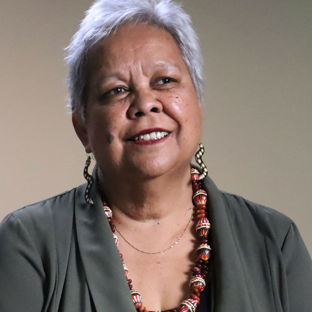Cashless Debit Card (CDC) regimes have been operating in Ceduna, South Australia, and East Kimberley, Western Australia, since 2016. Under these schemes, welfare recipients receive most of their income pre-loaded onto restrictive debit cards that can’t be used for the purchase of gambling or alcohol products, or to withdraw cash.
Proponents say welfare quarantining protects children and vulnerable people from the harm caused by alcohol and gambling in remote communities. But others say the restrictions are punitive and even racist, primarily affecting Aboriginal people and people with disabilities. In terms of an incursion on the liberties of free Australian citizens, the CDC is indeed unusually radical. Yet in 2018, two new CDC schemes are expected to roll out in communities in Western Australia and Queensland.
For this discussion, we’re bringing together activists, academics and ordinary citizens who have lived with the CDC. Does the evidence support the extension of the programme? Is there a dark side to the regime? And in choosing the locations for the scheme to be rolled out, is remoteness a proxy for race?
Presented in partnership with Liberty Victoria.
Featuring

Jessie Taylor
Jessie Taylor is a lawyer working in the community sector, and a Lecturer in the Faculty of Law at Monash University. Jessie is the current President of Liberty Victoria. In April 2018, Jessie was appointed to the Board of Directors of Donkey Wheel Ltd. She sat on the Board of the Asylum Seeker Resource Centre in 2015–16.
Prior to going to the Bar in 2011, Jessie worked as a Duty Lawyer at Victoria Legal Aid. In 2010 she was Associate to Justice Mordy Bromberg in the Federal Court of Australia. In 2009 Jessie was contracted by the Federal Attorney-General's Department as a researcher and writer on the National Human Rights Consultation.
Jessie was Chair of the LIV Refugee Law Reform Committee and sat on the Executive Committee of the LIV Administrative and Human Rights Law section (2009 and 2010). She has been a Visiting Fellow at the Australian Human Rights Centre & an Honorary Research Fellow at the Monash Asia Institute. She has worked as a researcher in the Castan Centre for Human Rights Law, and as a tutor in the Indigenous Tutorial Assistance Scheme.
In 2005 she attended the closing session of the UN Commission on Human Rights as an intern with the Australian delegation. She has worked in community development at Springvale Monash Legal Service, and participated in the general law clinic at SMLS, as well as the joint clinical legal service with the South Eastern Centre Against Sexual Assault, assisting victims of sexual assault to obtain Victims of Crime compensation.
Jessie is the author of the report 'Behind Australian Doors: Examining the Conditions of Detention of Asylum Seekers in Indonesia'. She is co-writer and producer of the films We Will Be Remembered For This (2007) and Between the Devil and the Deep Blue Sea (2011).
Elise Klein
Elise Klein is a Lecturer of Development Studies, School of Social and Political Sciences, University of Melbourne. She currently leads a research project examining Cashless Debit Card trial in the East Kimberley and works on a grant from the British Council’s International Challenges Fund on therapeutic cultures and the digital revolution.
Dr Klein was a contributor to the United Nations Secretary General’s High-Level Panel on Women’s Economic Empowerment. Her new book is Developing Minds: Neoliberalism, Psychology and Power (Routledge, 2017).

Jackie Huggins
Beverley Walley
Beverley Walley is a Noongar Ballardong woman from the South West of Perth in Western Australia. She also has connections to the Mirrawong Gaderong people in the East Kimberley of Kununurra, Western Australia, where she currently resides.
Beverley did her primary and secondary schooling in a wheatbelt town called Goomalling which is approximately 100kms from Perth. After graduating Year 12 at Iona Presentation College in Mosman Park WA, Beverley then went on to complete a Diploma in Secretarial Studies.
Soon after, Bev worked for the Aboriginal Legal Services following other experiences with appointments to Department of Community Welfare, Department of Social Security and ATSIC-Aboriginal Medical Services in Broome and Kununurra, and Centrelink in Kununurra.
During her education journey, Bev has been involved with Oxfam Australia and Aarnja, both strong women’s leadership organisations. Bev has also been involved supporting individuals who are against the Cashless Debit Card scheme. Bev is currently a retiree who was an employee for ten years with the Department of Education.
At present Bev is the Chairperson of the Ord Valley Aboriginal Health Service in Kununurra, WA.
